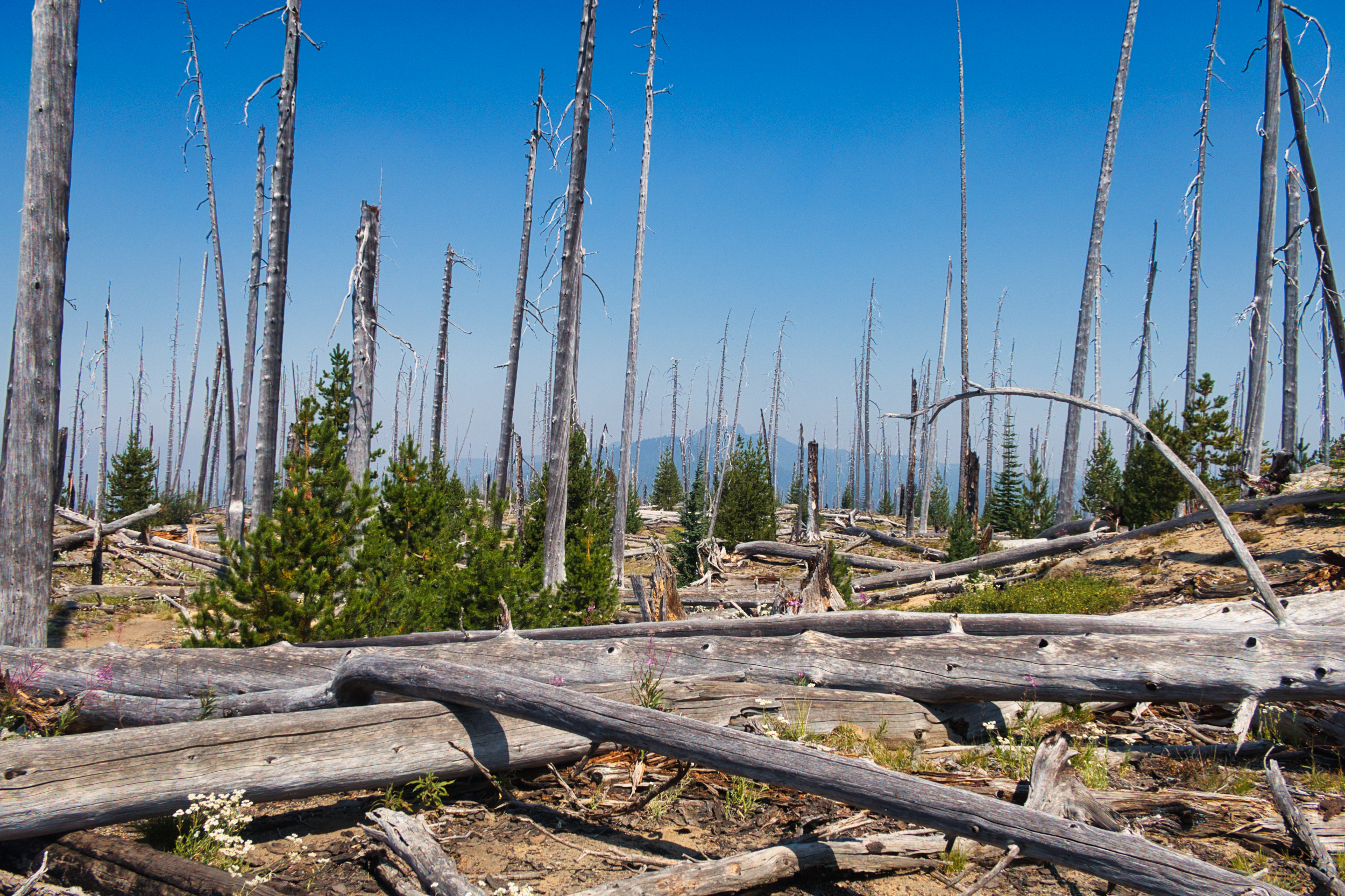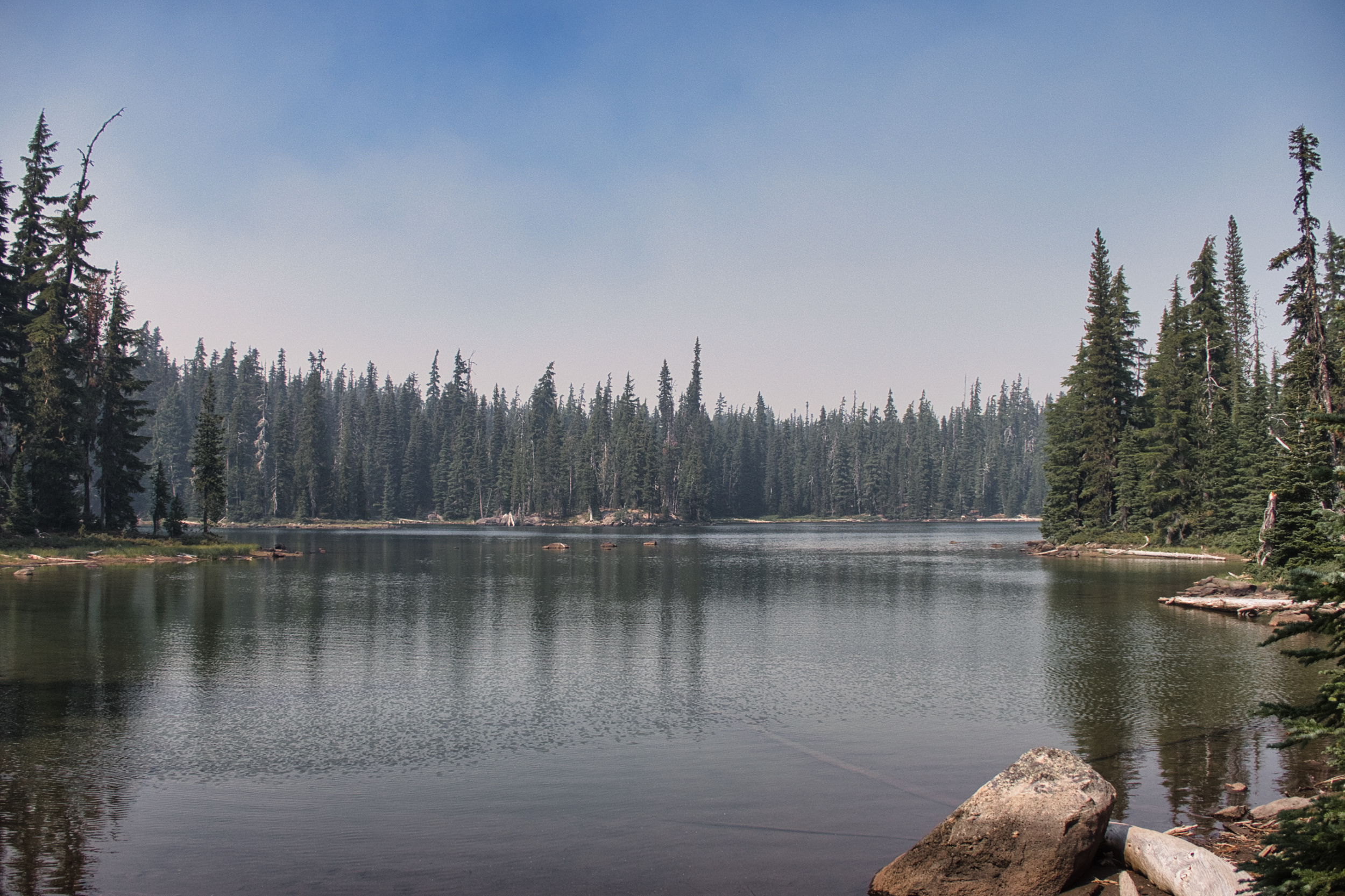My last night on the trail, I think
Reading back over my earlier journal entries, I see that they are awful to the point of being unreadable. They are accounts, not stories. They are devoid of emotion and spirit. They are withdrawn and reserved. They lack joy, a feeling that usually suffuses my time on the trail.
In that sense, they are true to my experience. Although the trail has been fine and fair today, today is an exception. Most days have been unbearably hot, unbearably smoky. And the hardest thing to bear is the knowledge that I am witnessing the death of these forests. My response could have been to hold them tighter, to cherish what is left. Instead I have just withdrawn, held back any emotion out of fear that the loss is just too great.
This year’s drought and fires are no aberration. They are the future, the new normal. Every year another chunk of forest will be lost. And a forest is not just a bunch of trees.
Insects, mammals, amphibians, fish, reptiles, birds, flowers, shrubs, grasses, mosses – you get the idea. All so beautiful, all so connected, all so interdependent. All will be replaced by scrublands filled with generalists, plants and animals that can persist through extended droughts, sudden floods, catastrophic fires, unseasonable freezes. The forest is disappearing and it will not come back.
So I have been stepping back, sparing myself the pain of giving my heart to a place that is doomed.
When I set out from Castella (mile 1500), I was hoping to make it to Santiam Pass at mile 2000 (a nice round number). That is now looking unlikely. I’ve cut my daily miles from 25+ down to 16-18, but that is not a prescription for healing my knees. It’s just me putting off the inevitable.
This has been an awful hike in many ways – the drought, the smoke, the heat. But it is still trail life, a life of freedom and adventure. It is a life lived entirely in the present. Every step, every choice has meaning and consequence.
Specialization is the very definition of civilized life. You do one or two things well–well enough that others will pay you to do them–and you really don’t need to have any other operational skills (social skills are another story). You can just pay other people to put their skills to use meeting your needs. Those people can feed you, clothe you, house you, get you where you need to go. You can outsource as much of your life as you care to.
I find little satisfaction in any of that. I find great satisfaction in traveling the countryside powered by my own feet; in choosing my own route and pace; in deciding where to get water and where to camp; in cooking my own meals, most of which I prepared myself from food I grew myself.
I am not foolish enough to imagine that this gives me true control over my own life. Control is always an illusion. But it does mean that I am at least participating in my own life, rather than simply being swept along by the tide.
I value that, and I will be loath to give it up.



